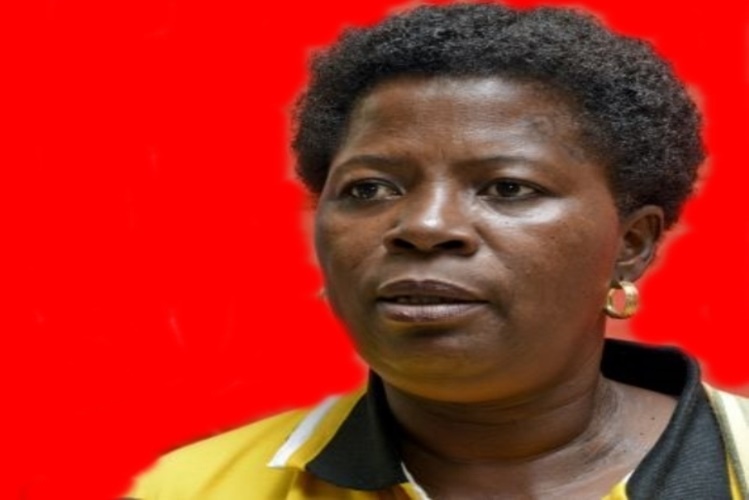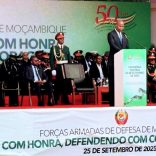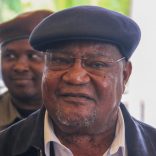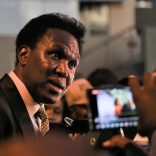Tanzania affirms to broaden bilateral ties with Mozambique
New ministers: Put politics in command* – By Joseph Hanlon

Folha de Maputo (File photo) / Conceita Sortane, new Minister of Edcation
Frelimo Political Commission member Conceita Sortane was named education minister on 26 November, replacing the highly respected Jorge Ferrao who had been in post for less than two years. She has a Masters degree in education from the Pontificio Universidade Catolica (PUC) in Sao Paulo, Brazil, but her only recent educational role was in a previous post as Frelimo Central Committee Secretary for Training and Cadres. At the time of her appointment, Sortane was a member of parliament (Assembleia da Republica, AR) and chair of the parliamentary Commission on Social Action, Gender, Technology and Media. At the October Frelimo Central Committee meeting, Sortane was named to head the national party brigade in Cabo Delgado, President Nyusi’s home province.
Ferrao was the second respected technocrat to be replaced as minister by a political appointment in two months. Pedro Couto was sacked in late September as Minister of Mineral Resources and Energy, and replaced by Leticia Klemens who had no experience in the area. At the time of her appointment, Klemens was chair of the general meeting of Mozambique’s largest commercial bank, Millennium-BIM, as well as secretary of the general meeting of the main employers’ body, the Confederation of Mozambican Business Associations (CTA). She was also ambassador in Mozambique for the US State Department’s African Women’s Entrepreneurship Programme. When she was appointed, we noted that the 44-year old Klemens is part of the new generation of Frelimo children, and she is in business with the children of the key leaders of the independence struggle: former presidents Samora Machel, Joaquim Chissano, and Armando Guebuza as well as influential figures Alberto Chipande and Tobias Dai.
Ferrao and Couto were seen as two of Nyusi’s most important appointments – respected, honest technicians who could bring about change. Reasons are never given for dismissals in Mozambique, and there is widespread speculation as to how Ferrao fell from grace. One rumour is that Ferrao tried to force people to do more work on education and less for Frelimo during the working day. Canal de Mocambique (30 Nov) claimed that Ferrao tried to crack down on widespread corruption in text book and school desk procurement. Education (like Agriculture) has become a sclerotic ministry, with rigid fiefdoms and an expectation that no one had to work too hard, and there was time for Frelimo party work and business. A mark of the lack of organization is that yesterday afternoon, more than a week after Sortane took office, the Ministry website still listed Ferrao as minister.
Naming Sortane minister will make it much easier for Frelimo to use the Ministry of Education in election campaigns in 2018 and 2019.
Also on 26 November, Augusto de Sousa Fernando was named Deputy Minister of Mineral Resources and Energy, a post that had been left vacant since President Filipe Nyusi took office in January 2015. Fernando is trained in electrical engineering, and has spent much of his professional life as a senior figure in the state electricity company, EDM. He was chair of the EDM board of directors between 2010 and 2014, and had been an EDM administrator from 2006, in a period when EDM failed to make essential investments. AIM (26 Nov) notes Fernando “was honest enough to declare, in March 2014, that the electricity tariffs practiced by EDM were ‘unsustainable’. But, faced with an election that coming October, the government of the time, led by President Armando Guebuza, refused to put up electricity prices, thus condemning EDM to continue running at a heavy loss.” In late 2014 Centro de Integridade Publica (CIP) published a report entitled “Electricidade de Mocambique: poor service, not transparent, and politicised.” http://www.cip.org.mz/cipdoc%5C339_Relatorio Electricidade de Mocambique.pdf At the time of appointment, he was Director of the Technical Unit for Project implementation in the Ministry of Mineral Resources and Energy.
* (“Put politics in command” is usually attributed to Mao Tse Tung in a 1963 speech.)
By Joseph Hanlon












Leave a Reply
Be the First to Comment!
You must be logged in to post a comment.
You must be logged in to post a comment.